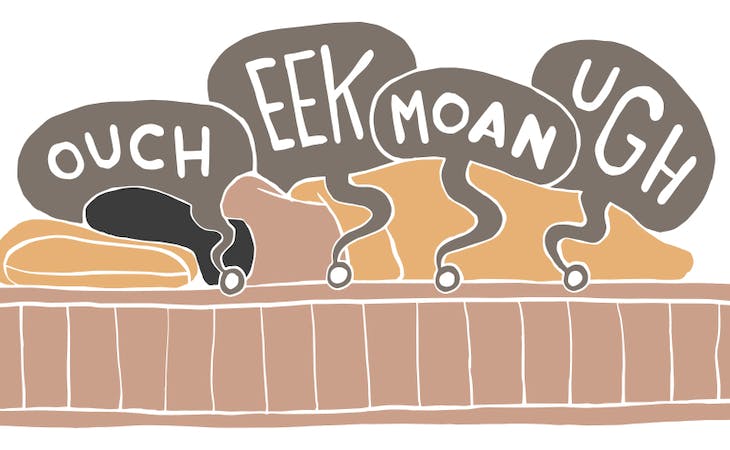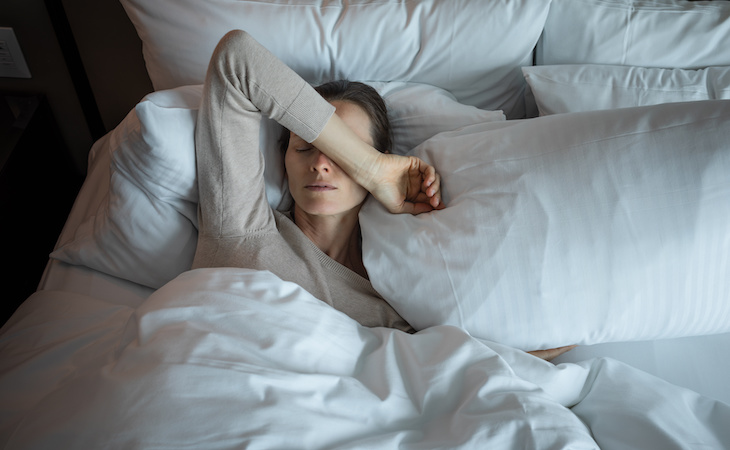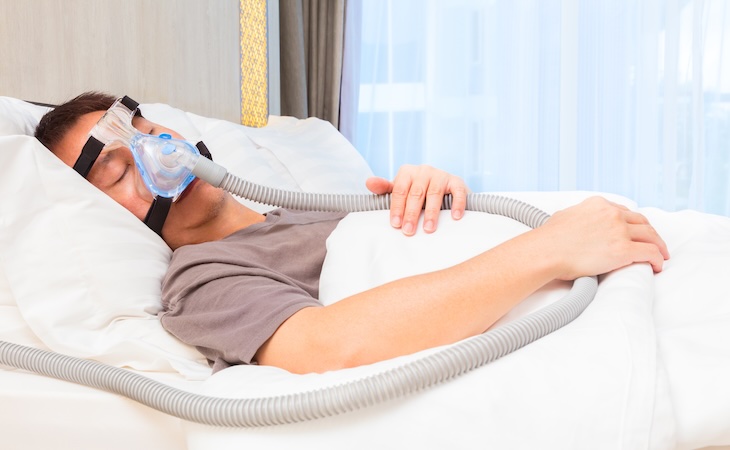A dull ache in your hips, a burning throb in your knees or back—it’s obvious why sensations like this can keep you awake at night. “When you’re lying in bed trying to fall asleep, especially if you’re turning off your electronics and don’t have distractions, there is nothing to do or think about but the pain you’re having,” says Daniel Smith, MD, an orthopedic surgeon at Mount Sinai West in New York City. But pain isn’t the only way arthritis affects sleep, he says. Anxiety and inflammation also play a role in your ability to get a good night’s rest.
If you experience chronic pain, don’t ignore your sleep issues—research suggests patients with insomnia also report worse and longer-lasting pain and have more mobility issues than those who get more rest.
Here’s how to sleep better if you struggle with joint pain or arthritis.
What causes arthritis pain
“Arthritis” is an umbrella term that includes about a hundred different joint conditions; the most common is osteoarthritis, in which cartilage between bones breaks down and joints grind against each other and become inflamed.
Aches and pains at night aren’t that uncommon, especially as you get older. Even sleeping on a worn-out mattress or too-firm pillow can make you uncomfortable enough to toss and turn. (Find out if your mattress is causing your back pain.) But arthritis is different from an occasional crick: Sufferers often describe it as an ongoing dull ache or a burning or grinding sensation, and there’s usually swelling and stiffness, too. “Especially first thing in the morning,” notes Smith. If you think you have undiagnosed arthritis, you may need to visit a rheumatologist for a checkup.
How arthritis affects your sleep
“Arthritis isn’t just about a loss of cartilage, it’s also the body’s response to it,” Smith explains. “One of the responses is inflammation, and it’s not isolated to the joint that’s affected—there’s increased inflammation throughout the body.”
Inflammation, in turn, is linked to sleep deprivation. “It’s unclear what is causing what, but well-documented studies show there is an increase in inflammatory markers associated with a lack of sleep,” Smith says. “It could be a bidirectional relationship: Not only could a lack of sleep increase inflammation and cause pain, but inflammation could cause a decrease in quality of sleep.”
One of the best ways to combat chronic inflammation is regular physical activity. Even just 20 minutes of exercise reduces inflammatory markers in the blood, a 2017 study out of the University of California, San Diego found. Regular physical activity also reduces joint stiffness, notes Smith, and can help keep weight in check, which in turn helps reduce pressure on joints.
Diet is important, too—foods common in the traditional Mediterranean diet such as seafood, nuts, and beans are often recommended to arthritis sufferers because of their anti-inflammatory power.
Many people with arthritis also experience some level of anxiety, says Smith. One 2013 study in chronic pain patients found that almost half had anxiety symptoms severe enough to be considered a clinical disorder. What does that have to do with sleep? Anxiety is enough to cause insomnia all on its own, but studies also suggest that a lack of sleep—due to all that pain and worry!—can make people more sensitive to pain and worsen the original anxiety. Talk about a vicious cycle.
Clearly, reducing anxiety is one key to getting better quality sleep with arthritis. Stress-relief techniques like mindfulness meditation, progressive muscle relaxation, and yoga are all effective options, according to Harvard Women’s Health Watch. Some antidepressants prescribed for anxiety and depression can also help lessen pain, and there’s strong evidence that cognitive behavioral therapy can reduce both anxiety and pain. (Learn about the connection between rheumatoid arthritis and sleep.)
How to sleep better when you have arthritis
“There’s no particular sleep position that always decreases pain or pressure on joints; everyone experiences arthritis a little differently,” says Smith. But choosing a pressure-relieving mattress or mattress pad like those made of memory foam or latex can reduce pressure on sensitive hip and shoulder joints, especially for side sleepers.
If you sleep on your back, putting a pillow or bolster under your knees takes pressure off sore knees and your lower back, says Smith. Don’t worry too much about tossing and turning a bit—changing position throughout the night is actually important for reducing joint stiffness and swelling, he says.
Fibromyalgia is another health condition that can affect the quality of your sleep. Here, learn how to sleep better with fibromyalgia.





